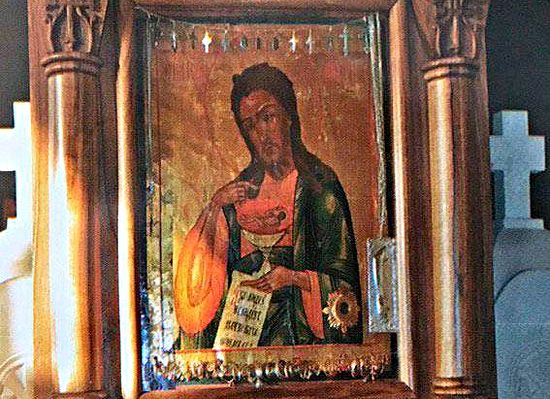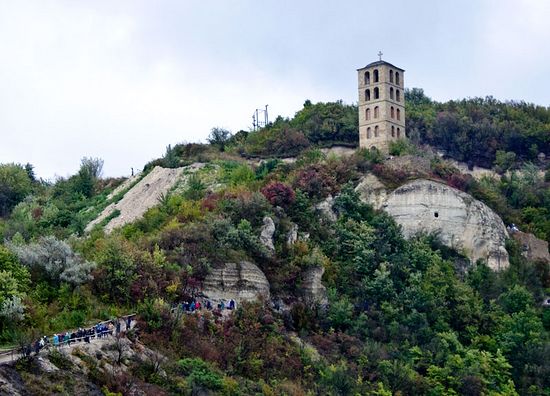Miraculous icon of St. John the Baptist stolen from Lyadova monastery

 An ancient miraculous icon of St. John the Baptist was stolen from the cliff monastery of the Beheading of St. John the Baptist in Lyadova, Ukraine, 225 miles southwest of Kiev.
An ancient miraculous icon of St. John the Baptist was stolen from the cliff monastery of the Beheading of St. John the Baptist in Lyadova, Ukraine, 225 miles southwest of Kiev.
The Union of Orthodox Journalists reports that on the night of February 6 to 7 intruders broke down the door to the Church of the Mother of God “Joy and Consolation” and, of all the sacred items there, stole only the miraculous icon of St. John the Baptist. The icon with relics of the saint was decorated with several gold and silver pendants offered by the faithful in gratitude for miracles performed by the prayers of the Forerunner.
The icon, which stood in the center of the church before the altar, is over three feet in size, and with its large wooden casing it would be difficult for just one person to carry out.
None of the monks heard or saw the perpetrators break into the church. The monastery is located on the cliffs on the banks of the Dniester River at a height of 330 feet. Moreover, the theft occurred on a windy and snowy night which muffled any sounds.
Police arrived in the morning to investigate and found the icon under a layer of snow in the forest near the monastery, although the ornate pendants had been removed. The icon was returned to its proper place in the church. The search for the criminals is ongoing.
The abbot of the monastery Archimandrite Anthony (Netrebin) noted that the icon was sent to the monastery long ago by the Lord, and has traveled throughout Ukrainian, working miraculous healings wherever it goes. Its theft has inspired the monks to finish their gate more quickly and to improve security. “I think that such things happen because of the propaganda against the canonical Ukrainian Church,” the abbot said, noting how many holy sites have been attacked lately.
The Lyadova monastery is one of the oldest in Ukraine, being founded by St. Anthony even before the Kiev Caves Lavra. In 2013 the monastery celebrated its 1000th anniversary. The monastery was blown up by Soviets in 1938, and its revival began in 1998.
Source: Pravoslavie.ru

